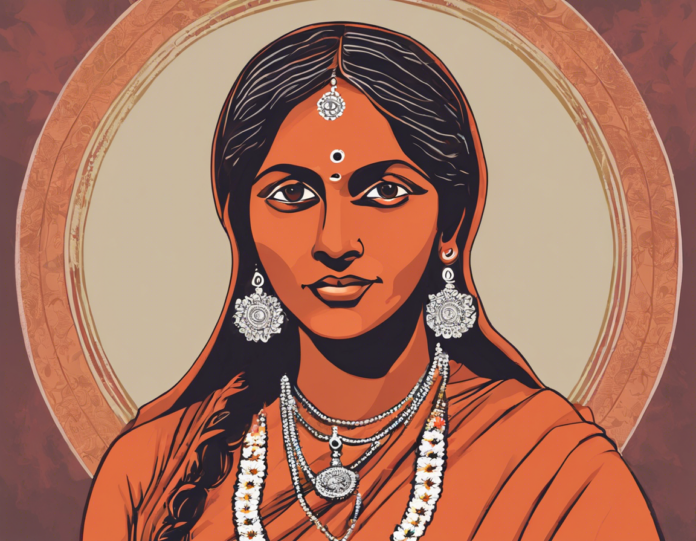Introduction
Savitribai Phule, a name that resonates with courage, compassion, and pioneering spirit, is often considered the first female teacher of India. Born on January 3, 1831, in Naigaon, Maharashtra, Savitribai Phule was a social reformer, educator, and a crusader for women’s rights during a time when women were denied even basic education and rights. She, along with her husband Jyotirao Phule, played a monumental role in initiating a revolution in the field of women’s education and social reform in India.
Early Life and Struggles
Savitribai Phule’s upbringing was not typical for a woman in 19th-century India. Despite facing several challenges and societal barriers, she was fortunate to have a supportive family that valued education. This foundation ignited her passion for learning and social reform. However, her journey was fraught with obstacles, including illiteracy among women, social discrimination, and oppressive customs prevalent in a deeply patriarchal society.
Pioneering Women’s Education
Savitribai Phule’s dedication to eradicating illiteracy among women led her to establish the first girls’ school in Pune in 1848, along with her husband Jyotirao Phule. This groundbreaking initiative faced severe backlash from conservative forces who viewed education for women as a threat to traditional norms. Despite facing immense opposition and criticism, Savitribai persisted in her mission to empower women through education.
Impact and Legacy
The legacy of Savitribai Phule is immeasurable, with her contributions extending far beyond the realm of education. She actively campaigned against social injustices such as caste discrimination, widow remarriage, and child marriage. Savitribai’s efforts paved the way for future generations of women to pursue education and assert their rights in a society that viewed them as inferior.
Key Achievements of Savitribai Phule
- Establishment of the first girls’ school in India
- Promotion of widow remarriage and women’s rights
- Advocacy for social equality and justice
- Empowerment of marginalized communities through education
- Trailblazing role in the feminist movement in India
Challenges and Resistance
Savitribai Phule’s advocacy for women’s education and social reform faced significant challenges in a conservative and male-dominated society. She endured threats, harassment, and ostracism for challenging traditional norms and advocating for progressive ideas. Despite these challenges, Savitribai remained steadfast in her commitment to empowering women and marginalized communities.
Recognition and Tributes
Today, Savitribai Phule is revered as a symbol of courage and resilience in the face of adversity. Her contributions to women’s education and social reform have earned her widespread acclaim and recognition. Institutes, awards, and scholarships have been established in her honor to commemorate her pioneering spirit and unwavering dedication to the cause of empowering women.
Legacy and Inspiration
The legacy of Savitribai Phule serves as a beacon of inspiration for future generations of social reformers, educators, and advocates for women’s rights. Her life and work exemplify the transformative power of education and the importance of challenging oppressive social norms to create a more equitable and inclusive society.
Conclusion
Savitribai Phule’s indomitable spirit and unwavering dedication to women’s education and social reform continue to inspire millions across the globe. Her legacy reminds us of the transformative power of education and the importance of uplifting marginalized communities. As we celebrate her remarkable achievements, let us reflect on her enduring legacy and strive to carry forward her vision of a more just and equitable society for all.
Frequently Asked Questions (FAQs)
1. Who was Savitribai Phule?
Savitribai Phule was a pioneering social reformer and educator who is regarded as the first female teacher of India. She played a pivotal role in promoting women’s education and advocating for social equality in 19th-century India.
2. What were Savitribai Phule’s major contributions?
Savitribai Phule established the first girls’ school in India, promoted widow remarriage and women’s rights, and advocated for social justice and equality. Her efforts laid the foundation for women’s empowerment and social reform in India.
3. Why is Savitribai Phule considered a trailblazer in the field of women’s education?
Savitribai Phule defied societal norms and conventions by championing women’s education at a time when it was widely opposed. Her persistence and dedication to the cause of education have earned her a prominent place in history as a pioneer of women’s empowerment.
4. What challenges did Savitribai Phule face in her advocacy for women’s education?
Savitribai Phule faced numerous challenges, including social ostracism, threats, and harassment, for challenging traditional beliefs and advocating for women’s rights. Despite these obstacles, she remained committed to her cause and made significant strides in advancing women’s education in India.
5. How did Savitribai Phule’s legacy influence future social reform movements in India?
Savitribai Phule’s legacy served as a source of inspiration for future generations of social reformers and activists in India. Her advocacy for women’s education, social equality, and justice laid the groundwork for subsequent movements aimed at creating a more equitable and inclusive society.
6. What is the significance of Savitribai Phule’s work in the context of women’s empowerment?
Savitribai Phule’s work was instrumental in challenging traditional gender roles and empowering women through education. By establishing schools for girls and promoting women’s rights, she paved the way for greater gender equality and social change in India.
7. How can we commemorate Savitribai Phule’s contributions to women’s education and social reform?
We can honor Savitribai Phule’s legacy by supporting initiatives that promote women’s education, advocate for social justice, and empower marginalized communities. By continuing her work, we can uphold her vision of a more equitable and inclusive society for all.
8. What lessons can we learn from Savitribai Phule’s life and work?
Savitribai Phule’s life teaches us the importance of courage, perseverance, and compassion in the face of adversity. Her dedication to social reform and women’s empowerment reminds us of the transformative power of education and the impact one individual can have on society.
9. How can Savitribai Phule’s legacy inspire us to create positive change in our communities?
Savitribai Phule’s legacy serves as a powerful reminder of the potential for positive change through education, advocacy, and social reform. By following her example and standing up for justice and equality, we can contribute to building a more just and inclusive world for future generations.
10. In what ways can we commemorate Savitribai Phule’s birth anniversary and celebrate her contributions to women’s education?
We can commemorate Savitribai Phule’s birth anniversary by organizing events, seminars, and educational programs that highlight her achievements and promote the values she stood for. By celebrating her legacy, we can ensure that her vision of women’s empowerment and social reform continues to inspire others for generations to come.









